The ASEAN air conditioning market is poised to grow significantly in the coming decades and if left unchecked, this increased demand will have profound economic, energy and environmental impacts in the region and beyond. To this end, the United Nations Environment Programme United for Efficiency initiative (UNEP U4E), the International Institute for Energy Conservation (IIEC) and Lawrence Berkeley National Laboratory (LBNL) collaborated to support the Japan-ASEAN Integration Fund (JAIF)-ASEAN Centre for Energy (ACE) project, Promotion of higher efficient air conditioners in ASEAN through harmonization of standards and strengthening of market verification and enforcement capabilities (Phase I).
To date, the project has provided technical recommendations for harmonizing of energy-efficiency standards, and recommendations for updating the regional policy roadmap for room air conditioners in the ASEAN, which were endorsed during the 39th ASEAN Ministers on Energy Meeting (AMEM) in September 2021.
A workshop was organized on 7 July 2022, hosted by ACE and UNEP U4E to follow up on the status of the national implementation of regional policy roadmap and, harmonizing the minimum energy performance standards (MEPS) and testing standards for air conditioners. Furthermore, it provided an opportunity for all relevant stakeholders from ASEAN member states (AMS) to describe and discuss the barriers in implementation along with any additional support requirements on the next steps for national implementation.
The International Energy Agency (IEA)- ACE Roadmap Towards Sustainable and Energy-Efficient Space Cooling in ASEAN estimates that only 15% of households in Southeast Asia have an air conditioner today. However, with current trends in GDP growth, warming temperatures and urbanization, this is number is expected to increase rapidly, with analysis of UNEP U4E country savings assessment data for the U4E-ACE Regional saving assessment predicting that the electricity demand for air conditioning will grow by 130% to just over 600 TWh by 2040 (from 260 TWh in 2020).
Improving air conditioner energy efficiency will be critical to reducing energy, life cycle cost, peak load and emissions impacts from their use. To this end, the project aims to progressively increase the level of MEPS and to accelerate the deployment of higher efficiency air conditioners in ASEAN member states through the removal of non-tariff barriers to trade and active policy support to member states to increase energy security, reduce dependency on imported fuels, reduce emissions of greenhouse gases and reduce energy intensity through enhanced regional cooperation which is in line with the ASEAN Plan of Action for Energy Cooperation (APAEC) 2016-2025.
The project has already conducted detailed market assessments and various relevant analyses to produce a detailed assessment and analysis of energy use, cost efficiency, lifecycle cost, national impact, and manufacturer impact related to the proposed aspirational MEPS and labelling levels for each ASEAN member states.
The next stage is implementing a phase-step approach in updating ASEAN Regional MEPS, taking into account a seasonal energy-efficiency metric to accurately reflect the technology’s energy savings potential and communicate the savings to consumers. The detailed study undertaken by LBNL, identified the cooling seasonal performance factor (CSPF), as calculated in accordance with the international standard, ISO 16358-1, as the most appropriate metric. The first step in the phased approach is for the target of 20% more stringent MEPS (ISO CSPF of 3.7), which are about the same MEPS levels in India and Rwanda, to be adopted by 2023. The second step is for more stringent MEPS (ISO CSPF of 6.09), which are identical to the U4E Model Regulation Guidelines and the proposed MEPS level in China to be adopted by 2025. This staged implementation is intended to give sufficient time for member states to benefit from the economy of scale of energy efficient air conditioners in the global market, and also for the local industry to react to the new MEPS levels.

In addition, the project recommends that, by 2023, fixed speed and inverter efficiency metrics are combined as CSPF, and technology neutral MEPS are adopted for fixed speed and inverter units in each member state.
It further recommends extending the scope of the ASEAN Regional Policy Roadmap for air conditioner MEPS by 2023 to cover all air conditioners with cooling capacities up to 4.5 kW. This is to ensure that all popular cooling capacities in member states are captured in the Regional Policy Roadmap. Significantly, MEPS and labelling programmes for air conditioners in most member states have already moved beyond the current ASEAN regional MEPS (which relate to cooling capacities of up to 3.52 kW).
During the workshop some of the issues that have been identified by member states were shared with the group, including:
- Difficulties in developing the market and manufacturer assessment (and the availability of sales data) to support the policy recommendations in increasing the MEPS level
- Insufficient market monitoring, verification and enforcement (MV&E) capability to ensure the regulations are implemented in the actual process
- The need for the wider promotion in some member states of the benefits of using higher efficiency air conditioners
- High influx of low efficiency air conditioning products to the ASEAN region due to the low current MEPS level.
The participants also highlighted the need for conducting consultation workshops with stakeholders from government, manufacturers, testing laboratories, NGOs, consumer groups and industry bodies to apprise them the benefits of upgrading MEPS and understanding their barriers for implementation and to provide necessary assistance (technical, financial, etc.). Proposals for the project to address these barriers as it moves into the next phase were welcomed by participants. These include focusing on reinforcing market MV&E capability and increasing the awareness of energy efficient air conditioners. The latter will be achieved by providing support for customer awareness studies and campaign activities, along with capacity building for member state policymakers on increasing customer awareness. MV&E capability will be strengthened through the development of:
- A market and manufacturer assessment report, ASEAN MV&E guidelines
- A regional product registration system (with the option to link to individual national systems)
- Action plans for mutual recognition agreement guides for air conditioners in ASEAN
- Updates to the regional policy roadmap.
Overall, the project represents a high ambition scenario to transform the air conditioner market in ASEAN to higher efficiency air conditioners. Based on UNEP U4E’s country savings assessment data, this will result in a cumulative electricity saving of approximately 342 TWh by 2030. This is equivalent to taking 133 million cars off the road.
For more information on this project and others in the region, see the ASEAN regional page on the UNEP U4E website.


Leave a Reply